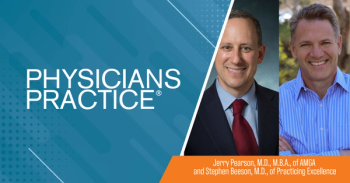
How the Pros Market Medical Practice Websites
Is your practice website getting the attention it should? Here are the top tips to get more visitors to visit you online.
Website content may be king, but marketing your website gives you the keys to the kingdom. The best website money can buy is valueless if it is invisible, buried deep in the bowels of search engine results.
Here’s how professionals do it thanks to Tim Price, HCP’s Director of Design Services:
Keyword Research
One of the most important aspects in developing your website should be the selection of the most relevant keywords and keyword phrases for the site in order of actual usage. Professionals determine the most used search terms relevant to services provided, and then they write content pertinent to those search terms.
Website Software
Professionals now use third-party, open-source development software like WordPress because it is the most compatible with search engine algorithms and can be changed at will, with less effort.
Title Tag Optimization
The title tag, which is a short description of each page on your site, is mandatory. The most searched for (and current) keywords should go first in the title tag.
Page Text Optimization
Body text is one of the primary features that search engines analyze when ranking a webpage. The page title and page text are the two most critical aspects of website optimization.
Image and Video Content and File Names
Google LOVES video. Posting product and/or service videos of your core abilities and posting on your custom YouTube Channel is a critical component to increase traffic comprised of relevant people.
Renaming the image and video file names to match relevant search terms is quick, easy and mandatory. For example, rename that picture of Doctor Smith from 00001.gif to dr_edward_b_smith.gif. That makes it searchable and relevant. It’s a good practice to properly rename every image on the site, even ones visitors may not see. They all combine to boost keyword frequency and help achieve better rankings, including ranking on YouTube for videos and an additional ranking spot for the video on search engines.
Heading Tags
Search engines are engineered to treat heading tags as representing the content of the page on which they appear. There should be at least one heading tag on each page. Headings are defined by <h1> to <h6> designations. These tags should contain a specific keyword along with any other descriptive text relevant to the content of the page. The Google ranking algorithm dictates that if you're using a <h1> tag, then the text in between this tag is more important than the content on the rest of the page.
File Names & Link Text Optimization
You should make the file names of the pages descriptive and use targeted keywords whenever possible. If you have a sub-directory, its name should incorporate the most important keyword.
Link Popularity Building (Back-linking)
Link popularity is determined by the total number of websites that link to your site. Good link popularity is a critical component that will dramatically increase traffic to your website and its ranking. You should link to sites that complement the topic and category of pages within your site, thereby offering the web visitor more information on relevant topics. You should appear on all association, directory, online buyer guides, and any other sites that are industry-related and offers link backs.
Change and Add Content Weekly
The more often your site is updated, the more important search engines think it is. Build at least some web pages with the ability to easily add original new content, like a blog. Provide information relevant to your services. Write about how to recognize trouble on conditions directly related to your practice, how you treat them, and with what. If you cannot commit to doing this weekly, it has little value.
Social Media
Creating simple, yet effective landing pages on Facebook, LinkedIn, and YouTube with links on and to your home page adds value and relevance to your site in addition to new channels for information and visitation. Update them weekly, if not daily.
Educational Institution Links
Contact colleges and universities, and find a reason for them to provide a link to your website, perhaps by running a special internship opportunity, or placement in an alumni directory. Search engines perceive .edu links as thousands of times more valuable than links to regular websites.
If your website provider (or internal people) have not done or are not doing these things, it is costing you time, money and revenue. The less they do, the more you are losing.
Find out more about James Doulgeris and our other
Newsletter
Optimize your practice with the Physicians Practice newsletter, offering management pearls, leadership tips, and business strategies tailored for practice administrators and physicians of any specialty.








